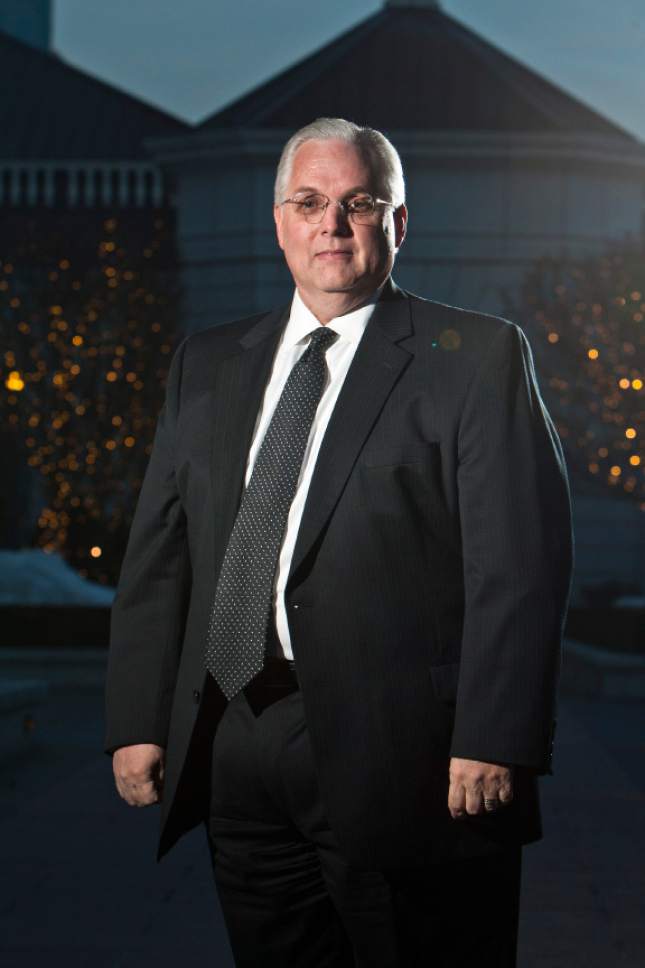This is an archived article that was published on sltrib.com in 2017, and information in the article may be outdated. It is provided only for personal research purposes and may not be reprinted.
Religion's public policy entanglements with secular forces inevitably ends badly for religion and its adherents. It does not seem to matter if those entanglements are conflicting or cooperating, it diminishes religion.
Those religions choosing to politically cooperate with secular interests lose adherents devoted to religious orthodoxy. In like manner, religions choosing to politically oppose secular interests lose adherents less grounded in their religion's orthodoxy. Either way, public policy entanglements between religious and secular forces inevitably result in division and disruption, undermining religion's purity, prosperity and progress.
Facing that reality, religion should completely disengage from the culture war that really is nothing more than battles between the forces that are either fighting to accommodate or oppose secular interests and trends trying to dominate society.
Evidence abounds that the culture war has been destructive to religion in America. The culture war battlefields are strewn with millions of religious casualties from Catholics, Southern Baptists and mainline Protestants, who engaged as culture warriors opposing or cooperating with secular forces over public policy conflicts.
All of these once vigorous and growing religions are now in rapid numerical decline since engaging in the culture war. Even Mormons, who marshaled their forces for selected battles in the culture war, are now experiencing a decline in their rate of growth. All of these religions have paid a heavy price for deploying their forces to secure public policy victories that ultimately failed to compensate for the consequences suffered by them and their adherents.
It is time for the religious culture warriors to stand down and withdraw from the field of battle, regroup and reorient their religion to the first and foremost missions of saving souls and building the kingdom of God upon earth.
In practical terms, what does this mean for religion's public policy engagements? It means, as just one example, that religion should not stand in the way of LGBT advocates in the pursuit of their civil rights. Religion should not oppose LGBT advocates through either legislative action or in the courtroom.
On the other hand, religion should not support the advocates either. Doing so confuses its devoted adherents. The LGBT advocates are perfectly capable of obtaining their own goals and objectives without religion distracting itself from its foremost missions by opposing or supporting their public policy agenda.
Calling on religion to stand down from the public policy battles of the culture war in no way suggests that religion should stop declaring eternal truths and doctrines over its pulpits, warning its adherents and society of the consequences associated with secular trends in conflict with those truths and doctrines. If anything, at least for those religions that have related moral standards, religion should be far more aggressive about prophetically warning of the risks in fraternizing with secular forces.
Moreover, religion should not discourage its adherents from actively accessing the public square. It should courageously teach correct principles no matter the consequences and let its adherents govern themselves in the public policy application of those principles. Religion should act as a battle hospital that provides a refuge for the spiritually wounded. Religion should spiritually heal and help recover those under siege by secular forces.
Meanwhile, religion's forces diverted to the culture war should be fully redeployed to tenaciously defend the God-given freedoms necessary to accomplish its foremost missions. Freedom for religion, its associated institutions and individual conscience of its adherents is absolutely critical for it to faithfully fulfill its divine obligations.
Where secular interests intersect with religious freedoms, religion should not oppose those interests but rather relentlessly secure exemptions from them. Religion should never be diverted by fights with Babylon. Instead, it should marshal its forces to advance the kingdom of God and nothing else.
Stuart C. Reid is a former Army chaplain, Salt Lake City councilman and Utah state senator.



